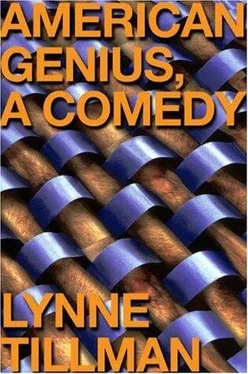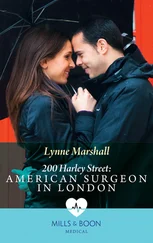The Narrator: If Felice could fly. If she had wings! They'd be clipped by her Kafka. He created her for himself. He didn't talk about her to his friends. In fact he didn't talk about her ever. When her name came up in conversation, he pretended he didn't know her. He hoped a visiting friend would bring news of her, unaware.
Then Felice, or the disconsolate young woman, heaves and sobs, she weaves in place, circles the stage, and stops short, then she collapses, still weeping convulsively. Her breath comes in fast bursts, she can't rise. "She's hyperventilating," shouts the stout Wineman, as he approaches the stage. Her wailing can't have been scored in Contesa's play, though it is spectacular and would be a feat if the disconsolate woman were acting, but now an anxious staff member rises from his chair and the Magician as well as the Count rush forward to help, I move forward also, and everyone is clustering around her downcast, skinny shape on the floor. The Wineman turns her over deftly, strokes her forehead, breathes into her mouth, counting one two three four, then breathes into her mouth again, until her breathing regulates itself, and she settles down, her body released. The residents spread out and give her more room to breathe and orient herself, as well as themselves, while the tall balding man caps his hand over his bald spot, rubbing it in circles, and the Count and I stand by, not knowing what to do, or if anything more is required of us. Usually, I believe, a paper bag is slapped over a hyperventilator's mouth.
Silence sounds like a clap of thunder.
At last, Contesa calls out that her play is over, even if it's not finished, and please everyone return to the lounge or your rooms, have a drink or a tea, and then she declares that our Felice will be fine. Each of the emerald green tufted-velvet chairs is empty, except for the Frenchman's, who remains and glares in her direction, also the site of the unplanned spectacle. He doesn't seem to be at a loss the way the rest of us are, he appears miffed or outraged, as if he might be a sophomaniac, which, according to the Medical Sex Dictionary in the library, is a form of insanity characterized by a belief in one's own supreme wisdom. He approaches the stage area with a saturnine visage and confronts the Count and me, asserting, in a still-charming French accent, that when Galileo was tried during the Inquisition, as he rose from his knees after he swore the earth was the center of the universe, not to be a liar, he muttered, "E put si muove." With force, the Count repeats in English, "Nevertheless it does move." "He was a fool to die for this idea, it would be found true, anyway," the Frenchman spits out, and takes off, looking back at me, daring me to rebuke or despise him, a look that might have sexual connotations. The Count remarks, casually, "I've met others like him."
I have also, and in the past I might have wanted to have sex with him, a bitterly provocative man, whose active disdain for common things and a love of evil might have carried the day and myself to his bed, briefly. But I don't like his skin, which is rough with large pores and a few blackheads around his nostrils, his tidy moustache, which hyphenates his lower from his upper face, and his height, he's too short for me. Imagining myself with him feels athletic and tiring, as if we'd played sex against each other in the Olympics. I once regularly used to carry a torch, but I no longer want to die for love, I might for an idea, but maybe that's also a romance, because I'd like to die for something and not nothing, which is probably my fate, and I'm here, with time off and on my hands, as well as the ambiguous luxury to consider such questions.
On July 3, 1826, Thomas Jefferson was in a coma and awoke long enough to ask, "Is it the fourth?" They were supposedly his last words, he died on July 4, 1826, at 12:20 p.m., and John Adams fell ill and died later the same day, at 6 p.m. His last words were: "Thomas Jefferson survives." At my finale, I'd like to have inspiring words like those on my dry, feverish lips, and someone to hear them and care enough to write them down, the way my dermatologist writes about my skin in his file that grows bigger and bigger. The Frenchman also has a regrettable brown mole on his cheek, its border is regular, if it were irregular, especially a new brown lesion, I might be compelled, though I wouldn't want to interfere or importune, to advise him to see a dermatologist, but I believe it is benign, even if he's marred in my eyes by an indefinable unsightliness and by his stupid beliefs. I can't understand why he, and many others with ugly growths on the face, especially when there is more than one, doesn't have it removed.
The residents amble, reluctantly or moodily, toward the thick, wooden double doors, where the Turkish poet looks distressed, so I wave at him wanly, he returns the wave, then disappears with Henry and Arthur to discuss this local and other more exotic scandals over cognac. But I feel suspended or caught and don't leave, or can't, so time passes, and, like much of time, I can't remember its passage, where it went, what occurred to me, only that for a while my legs were wooden and dense as a chair by Wright, and I stared into the room, not seeing, and, as in a dream when a monster appears, I couldn't budge, but I didn't faint or even come close to swooning. A former enemy once turned her back on me, and I couldn't move, but then she died, one of the three enemies to die, extraordinarily, within the same year, which left a vacuum or more space, and then I could travel safely in territories where once they might also have been, inhibiting my movements and spurious sense of freedom.
The disconsolate young woman's heaving sobs bother me. Her rebellious body intimidated and stunned us with its bursting, explicit urgency, exceeding the bounds by which we residents are circumscribed, and, while Kafka and Felice were subject to exquisite conflicts, the disconsolate woman's, involuntarily revealed, disconcerts me more in the moment. Curiously, her self-exposure awakens the balcony scene in which the inventor was displaying his peachy ass, though the two events had different causes, motives, and held very different excitements. I become aware of myself alone in the Rotunda Room, surrounded by empty, plush green velvet cushions on black wood chairs, and, in a sense, its many ghost stories, as well as Kafka's and Felice's, so when a loud crash at a window startles me, though probably just a stiff wind, the sudden sound jars me, and I shoot out of the room through the rustic, dark and heavy double doors downstairs to the main room, where some residents linger, JJ, the demanding man, one of the disconsolate women, not our Felice, and others. They are also confounded by her naked collapse and talk about it among themselves, but I require quiet and need to be in my room quickly, to undo the unforeseen, unsettling events, though I know that's impossible, so I turn toward the external door, stepping lightly and keeping to an imaginary line on the wooden floor, hoping to be invisible, to leave without further contact, since there's been enough socializing and vivacious or rigorous content to last for days. Perhaps I should round up Contesa for a heart-to-heart, but she must he with her actors, and the Count and she, more than anyone, will understand my need for flight, as she regularly flees, and, with that, I escape with relief, but outside on a pathway leading either to the library or one of the guest or resident houses, I notice the Magician, who is scowling or concen trating hard, with an incandescent light from a lamppost illuminating him. He crooks an index finger at me. I walk over without thinking about why he beckons me; actually I don't think at all, I walk over, drawn too easily.
— Helen, like I said, I have this feeling about you, you were the only one who didn't freak out when I did my trick. Did you see their faces? They wuz robbed.
Читать дальше












